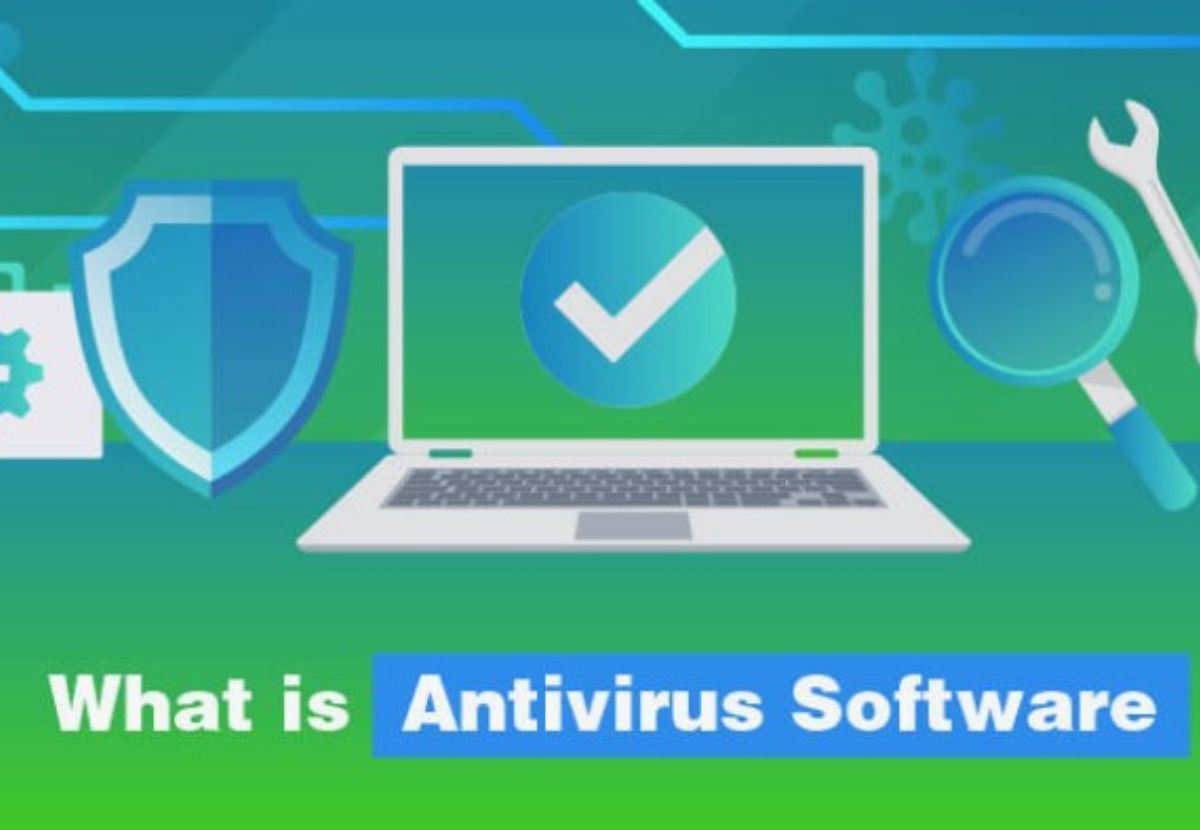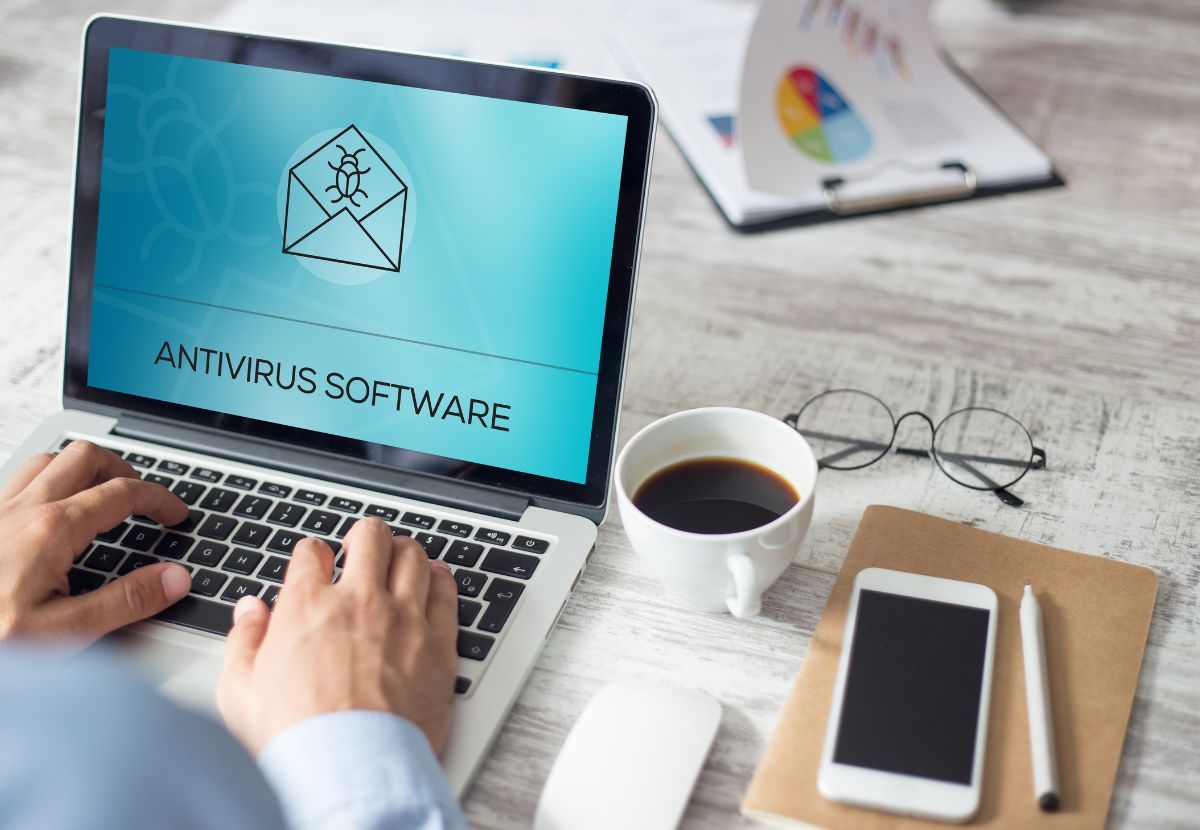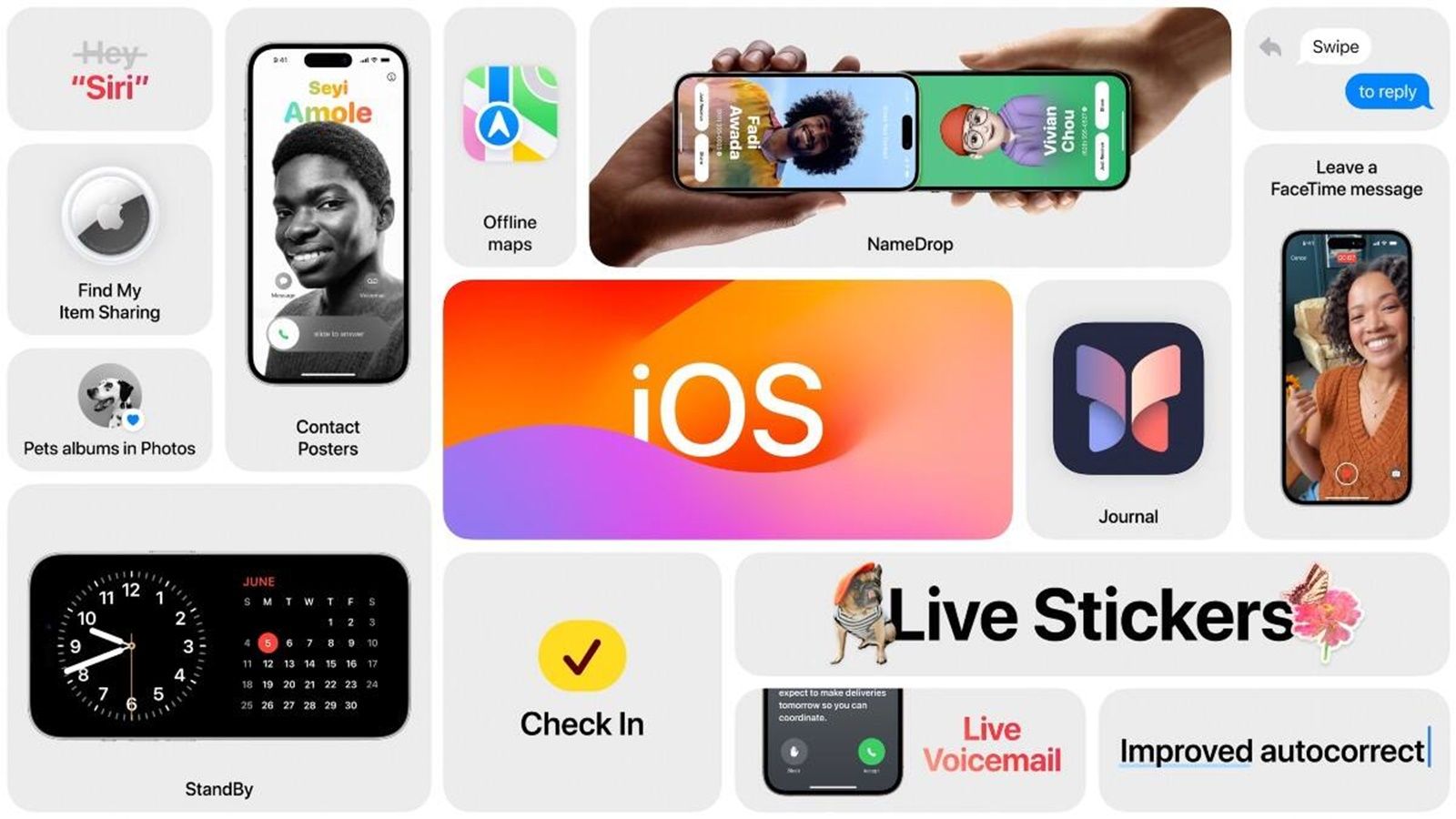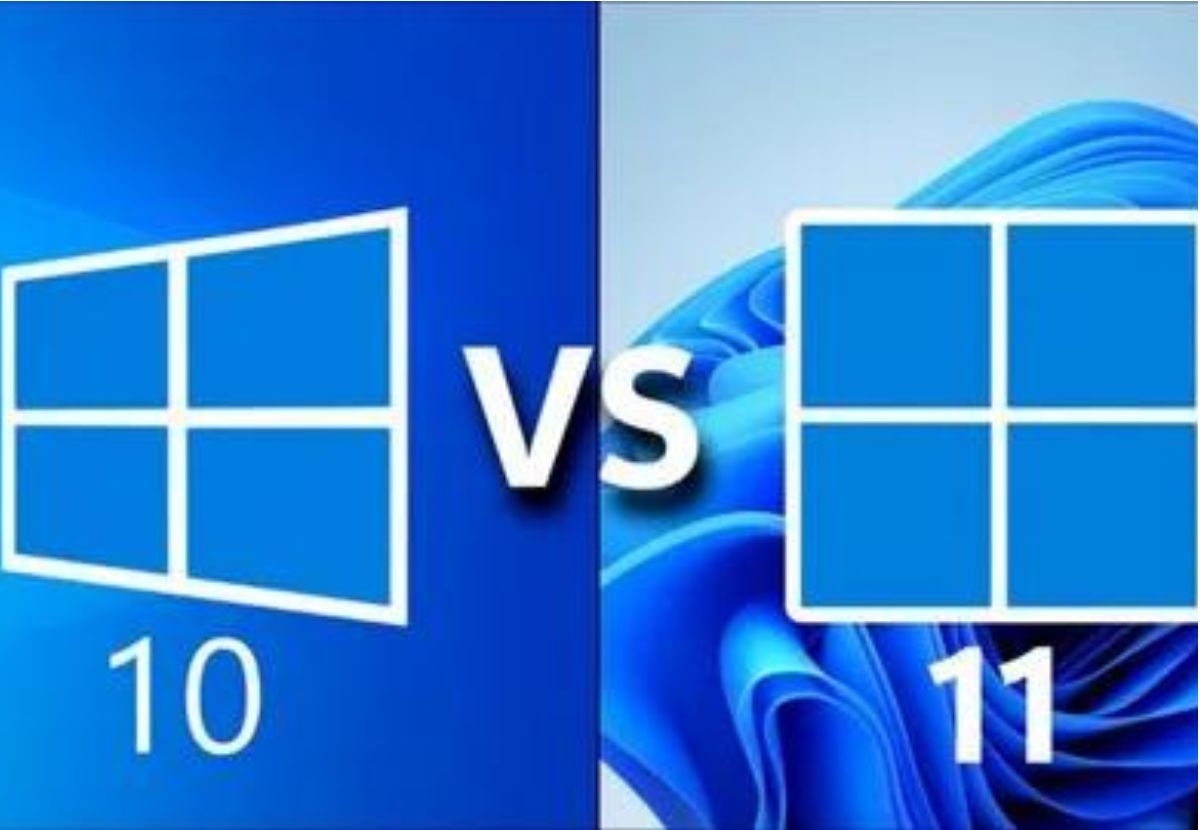
The need for robust cybersecurity standards cannot be overstated in today's interconnected world. Antivirus software is a frontline defence against which of the following is an antivirus software, commonly known as malware. Let's delve into the world of antivirus solutions, unravelling their types, functionalities, and the top players in the market.
Table of Contents
- Common Types of Antivirus Software
- Top Antivirus Software in the Market
- Features to Look for in Antivirus Software
- Free vs. Paid Antivirus Software
- How Antivirus Software Works
- Choosing the Right Antivirus Software for You
- Common Misconceptions About Antivirus Software
- The Evolution of Antivirus Software
- Antivirus Software and Internet Security
- User-Friendly Antivirus Software
- Tips for Effective Antivirus Software Usage
- Antivirus Software and Data Privacy
- Future Trends in Antivirus Software
- Conclusion
Common Types of Antivirus Software

Antivirus software comes in various types, each designed to combat cyber threats in distinct ways. Signature-based solutions identify known malware by comparing file signatures to a database. Behavioural analysis detects suspicious activities, while heuristic-based methods employ algorithms to recognize potential threats.
Cloud-based antivirus relies on real-time data from external servers, and sandboxing isolates and analyzes files in a secure environment. Firewall software controls network traffic for added protection. Endpoint security provides a holistic defence approach, while machine learning-based solutions adapt to emerging threats. Multi-engine antivirus combines multiple detection engines for enhanced security. Choosing the right type depends on specific cybersecurity needs.
Top Antivirus Software in the Market
In the crowded landscape of antivirus software, several top contenders stand out for their robust features and reliable protection. Industry leaders like Norton, Bitdefender, and McAfee consistently excel in real-time scanning, behavioural analysis, and heuristic detection. Kaspersky and Avast offer comprehensive solutions with additional features like firewall protection and secure browsing.
Trend Micro is recognized for its cloud-based security, while Malwarebytes specializes in combating advanced threats. Each antivirus solution combines advanced technologies, regular updates, and user-friendly interfaces, making them top choices for users seeking effective and comprehensive protection against a wide range of cyber threats.
Features to Look for in Antivirus Software

When choosing antivirus software, prioritize real-time scanning, signature-based detection, and behavioural analysis for swift threat identification. Automatic updates ensure ongoing protection against emerging risks, while a user-friendly interface and minimal system impact enhance overall performance.
Cloud-based protection, sandboxing, and heuristic analysis add proactive defence layers, detecting new and evolving threats. Consider antivirus solutions with supplementary features like firewall protection and email filtering for a comprehensive and resilient cybersecurity strategy.
Free vs. Paid Antivirus Software
Free antivirus software offers basic protection, including essential features like real-time scanning and signature-based detection. However, paid antivirus solutions often provide more advanced features such as behavioural analysis, heuristic detection, and robust customer support.
Paid options typically offer a more extensive malware database and frequent updates, enhancing their ability to combat emerging threats. Additionally, paid antivirus software may include extra security layers like firewall protection and secure browsing. While free options are suitable for basic needs, the added features, enhanced performance, and comprehensive support make paid antivirus worth considering for users seeking a higher level of cybersecurity.
How Antivirus Software Works
Antivirus software employs different techniques to safeguard your system against malicious threats. It utilizes signature-based detection, identifying known malware patterns, and behavioural analysis to spot unusual activities that might indicate a threat. Some employ heuristic analysis to recognize previously unseen threats based on behavioural patterns.
Real-time scanning continuously monitors files and activities to detect and eliminate potential risks promptly. Regular updates ensure the antivirus stays current with the latest threats. Overall, this software functions as a vigilant guard, employing a combination of methods to detect, block, and remove malware, ensuring the security of your digital environment.
Choosing the Right Antivirus Software for You

Selecting the right antivirus software hinges on your specific needs and preferences. Consider real-time scanning, signature-based detection, and behavioural analysis for robust protection. Evaluate the software's impact on system performance and opt for a user-friendly interface. Regular updates and a comprehensive malware database ensure resilience against emerging threats.
Cloud-based features, sandboxing, and heuristic analysis enhance proactive defence. A comprehensive antivirus solution may be preferable if seeking additional features like firewall protection and secure browsing. Tailor your choice to align with your cybersecurity priorities, balancing functionality and ease of use for optimal digital protection.
Common Misconceptions About Antivirus Software
Common misconceptions about antivirus software often revolve around its invincibility. Some users believe that it guarantees absolute protection once installed, leading to negligence in other security practices. Another misconception is equating antivirus with total system immunity, overlooking the need for regular updates.
Some also assume free antivirus offers identical protection as paid options, neglecting the advanced features and support that come with paid subscriptions. Lastly, users might think antivirus renders them immune to online risks, underestimating the importance of cautious online behaviour. Understanding these misconceptions is crucial for maintaining a proactive and holistic approach to cybersecurity.
The Evolution of Antivirus Software
Antivirus software has evolved significantly since its inception. Initially, it relied on signature-based detection. As cyber threats advanced, behavioural analysis and heuristic methods emerged to detect unknown malware. The integration of machine learning improved accuracy, adapting to evolving threats. Cloud-based solutions enabled real-time updates and reduced system impact.
Antivirus now encompasses features like sandboxing for proactive defence. The evolution mirrors the escalating sophistication of cyber threats, emphasizing the need for adaptive, multi-layered protection. Today's antivirus software combines traditional methods with cutting-edge technologies, reflecting a dynamic response to the ever-changing digital security landscape.
Antivirus Software and Internet Security
Antivirus software and internet security are vital components in safeguarding your digital environment and Ztec100.com Tech. Antivirus focuses on identifying and eliminating malware threats, employing methods like signature-based detection and behavioural analysis.
Internet security encompasses a broader scope, addressing potential risks during online activities. It includes firewall protection, secure browsing, and email filtering to fortify defences against various cyber threats beyond traditional malware. Antivirus and internet security create a robust defence, ensuring comprehensive protection against various online hazards, from malicious software to phishing attempts and other cybersecurity challenges.
User-Friendly Antivirus Software
User-friendly antivirus software prioritizes simplicity and efficiency. With intuitive interfaces, easy navigation, and straightforward controls, these solutions ensure a hassle-free user experience. Installation and setup are streamlined, and real-time scanning operates seamlessly in the background without causing disruptions.
Regular updates and automated processes enhance overall user convenience. Clear notifications and alerts provide transparent communication about system security. In essence, user-friendly antivirus software offers robust protection while minimizing complexities, making it accessible and effective for individuals, regardless of their technical expertise.
Tips for Effective Antivirus Software Usage
Ensuring your antivirus software operates at its best requires a proactive approach. Regularly updating the virus definition databases and scheduling routine system scans are essential practices to maintain optimal security.
Antivirus Software and Data Privacy
Understanding how it handles our personal information is paramount as we entrust antivirus software with our digital safety. Reputable antivirus providers prioritize user privacy, outlining transparent data collection, storage, and usage policies.
Future Trends in Antivirus Software
The landscape of cybersecurity is dynamic, and antivirus software continues to evolve. The integration of artificial intelligence for advanced threat detection and the rise of cloud-based solutions are shaping the future of antivirus protection.
Conclusion
Choosing the right antivirus software involves carefully considering your specific needs, the parts offered by the which of the following is an antivirus software, and its compatibility with your devices. The digital realm can be fraught with dangers, but with the right antivirus solution, you can navigate it confidently, knowing your cybersecurity is in good hands.
Read More: 101desires.com Internet
FAQs
What is an example of an antivirus software?
The most famous antivirus software packages that can be purchased are those offered by Kaspersky, McAfee, and Norton. Two instances of free antivirus software are AVG and Panda.
Is McAfee an antivirus software?
At its core, McAfee Total Protection provides our award-winning antivirus to defend against viruses, online threats, and ransomware with both cloud-based online and offline protection.
What are the 5 types of antivirus?
The ten types of Antivirus Software include Spyware scanners, Machine learning antivirus, Database antivirus, Malware removers, Email antivirus, Real-time antivirus, On-demand antivirus, Heuristic antivirus, Internet security suites, and Portable antivirus.










